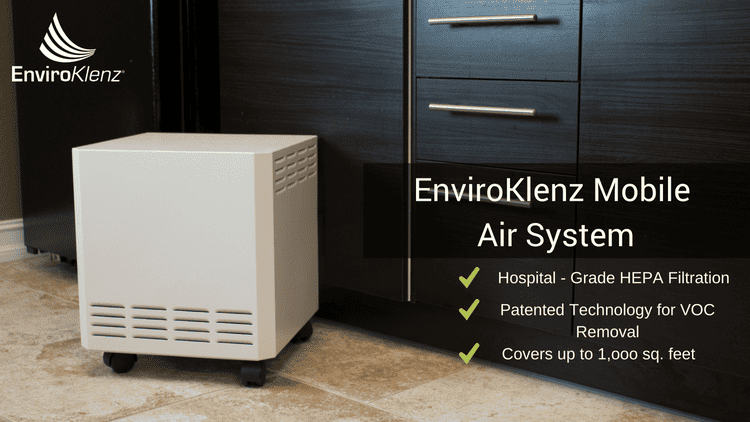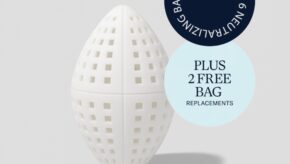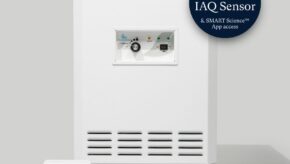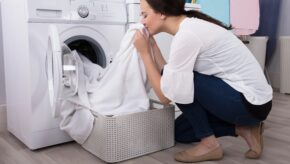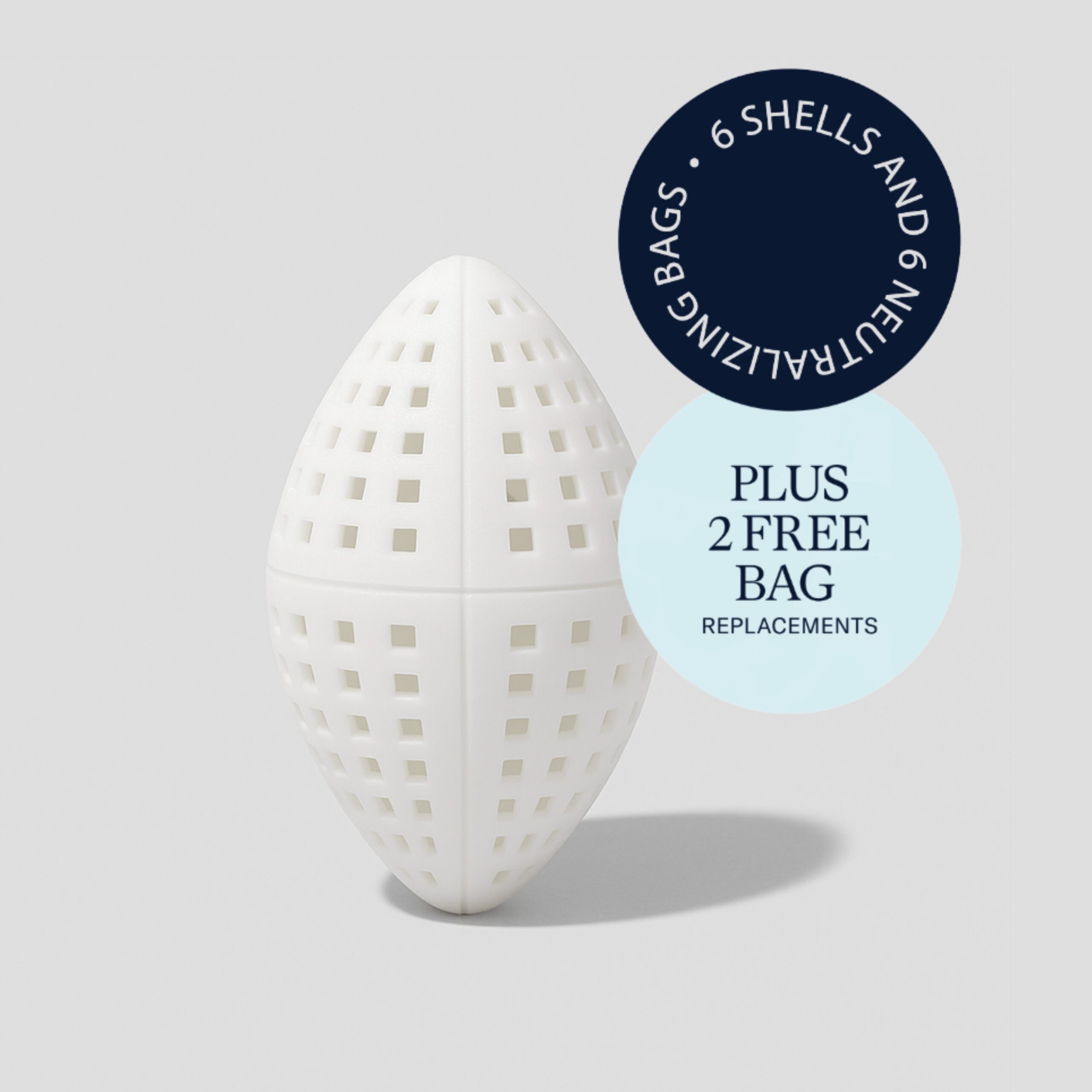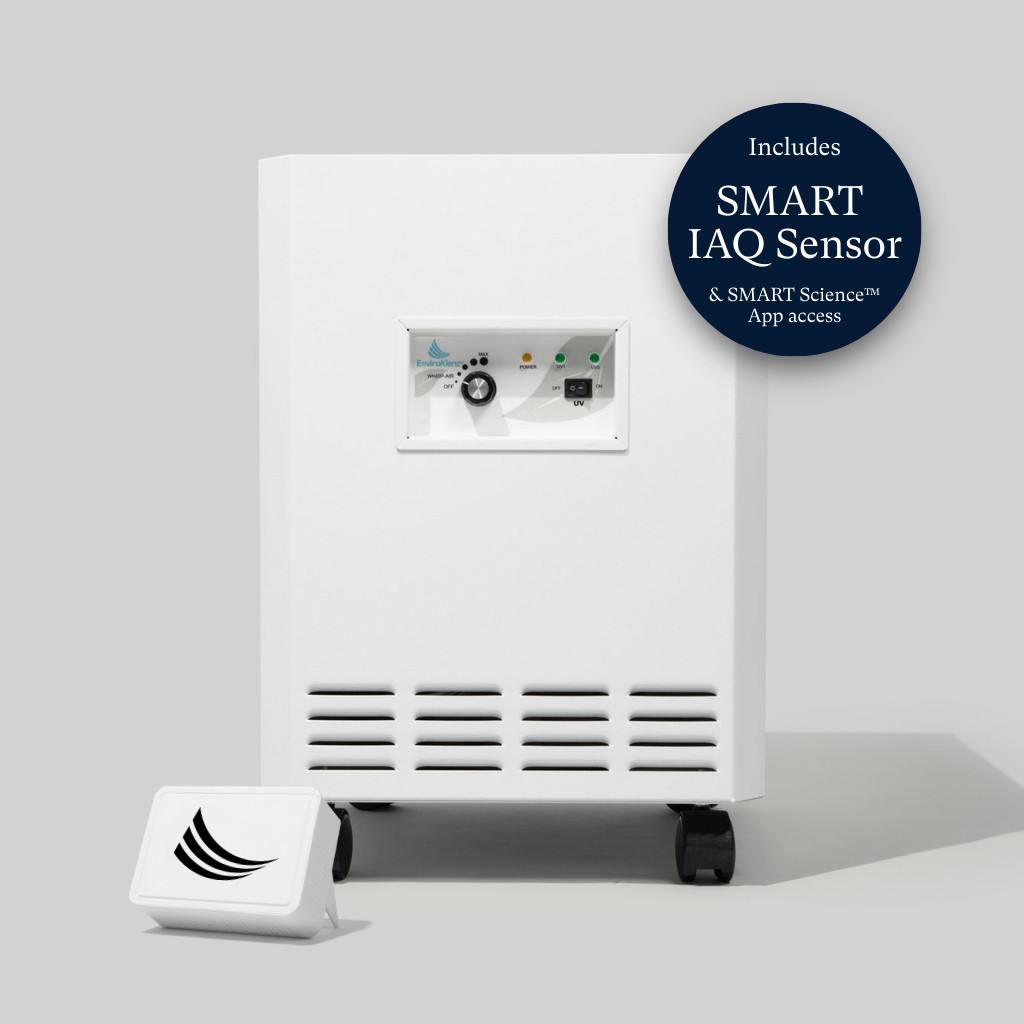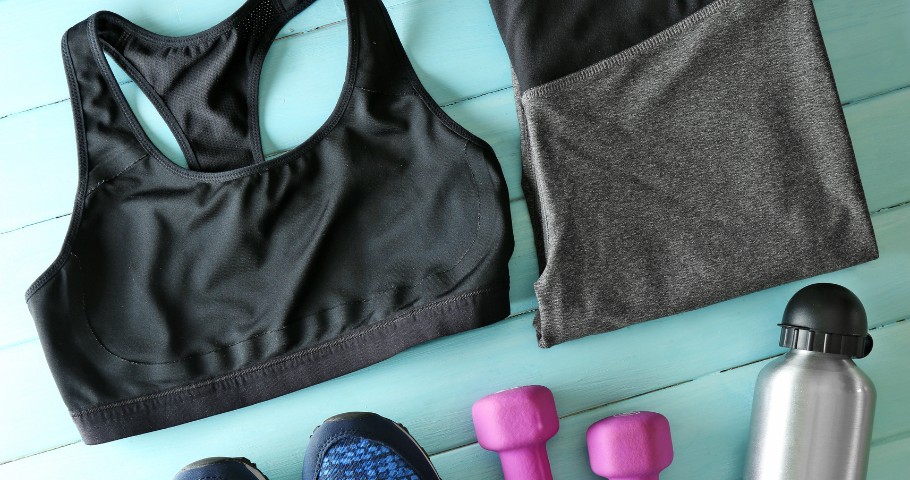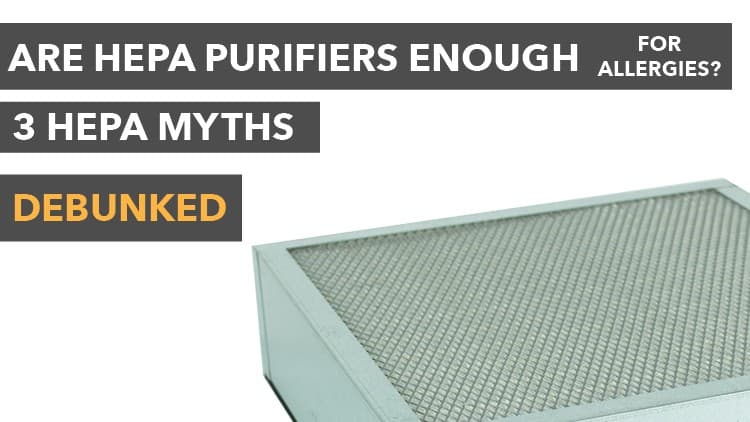Have you officially had it with your uncontrollable allergy flare-ups? Sneezing, watery eyes, sinus pressure, and all the usual allergy symptoms that afflict your health commence. Many allergy sufferers are equipped to handle the bouts of symptoms that strike when they step outside but what do you do when your allergy symptoms follow you inside your home? The brutal reality is your home is only as clean as the air within it, and according to the EPA, your indoor air quality can oftentimes be even more polluted than the air present outside. Dust, smoke, VOCs, and other allergens accumulate and create the source of contamination that will eventually lead to potential allergy symptoms within your home. In combating these indoor allergens in your home’s air, many will turn to an allergy recommended HEPA air purifier to remedy their allergy problems.
Contents
- Will an Air Purifier Defeat Allergens?
- Selecting an Air Purifier for Allergies
- HEPA Filtration (High-Efficiency Particulate Air)
- Benefits of a HEPA Air Purifier
- 3 HEPA Filter Myths Exposed
- A HEPA Filter Will Eradicate All Breathing Issues
- If an Air Purifier Has a HEPA Filter in it, then it Must Work
- Air Purifiers with HEPA Filters Remove Odors
Will an Air Purifier Defeat Allergens?
Allergies are one of the major causes of illness in the United States, and with as many as 50 million people suffering from this condition in the United States the need for alleviating practices to remove allergens, specifically from your indoor air, has become an essential component to allergy relief. Allergens such as pollen, dust, pet dander, dust mites, mold, and even cockroaches will incite the build-up of allergens in your confined indoor air and will lead to a noticeable spike in allergy-like symptoms. Allergens are composed of substances that are foreign to the body that will cause an allergic reaction when certain individuals are exposed to it. Once these foreign substances make contact and enter your passageways it can begin the allergic flare-up that is dreaded by all. Reducing the exposure to allergens and contaminants in your indoor air is critical and the key in defeating these allergens is through the use of an effective air purification device – better known as a HEPA air purifier- that has the ability to filter and eliminate small allergens trapped within the air.
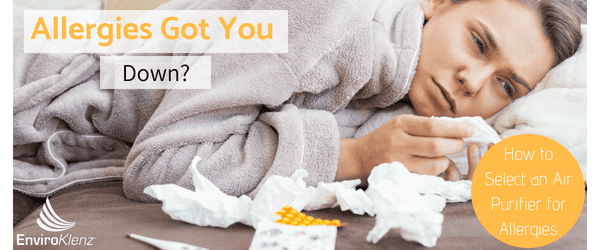
Selecting an Air Purifier for Allergies
Allergens can vary in size and are usually measured in microns. Microns are small particulate matter, usually equal to one-millionth of a meter, that can easily become airborne and present difficulty when trying to completely remove from the environment – and most importantly from the air. Dust mites, household dust, and mold spore allergens – many of the culprits of allergies – are small microns ranging from 0.5 microns to 200 microns in size that will create the potentially unstable indoor environment for allergy sufferers.
What can you do to counteract this instability in your home? Air filtration and purification are pivotal in the mitigation of these micron-sized allergens circulating in the air. Air purifiers are devices that aid in the removal of air pollutants from the airspace, which can be especially beneficial to those who suffer from allergies. Depending on the air purifier, different technologies are used to target specific pollutants in the air – such as mold spores, bacteria, viruses, particulates, chemicals, and odors. During the selection process of buying an air purifier, especially for allergen removal, it is critical to ensure that the air purification device has the capability to remove fine particulate matter larger than 0.3 microns in size to guarantee the capturing of allergens within the system. Testing on different air purification technologies has shown that particulate matter as small as 0.3 microns in size need an efficient HEPA filtration to trap and prohibit small particles – like allergens – in the filtration system.
HEPA Filtration (High-Efficiency Particulate Air)
HEPA, or High-Efficiency Particulate Air, refers to a type of filter that removes 99.97 percent of particles above a certain size – usually, 0.3 microns are larger. Many allergists recommend a HEPA purifier to those with substantial allergies whose symptoms plague them almost constantly – as a HEPA filter will sift out airborne allergens such as dust, pet dander, pollen, and mold spores by capturing them in the filter reducing the levels in the air drastically. HEPA filters are one of the most reliable and effective allergy reduction applications you can utilize in your home. The origin of this filter began in the 1940s as the U.S. Army Chemical Corps and U.S. Atomic Energy Commission developed the first HEPA filters to assist in the protection against radioactive chemical warfare agents. However, following World War II, HEPA filtration was implemented into commercial and residential environments expanding its protection to all environments. Now, HEPA filtration is primarily used in hospitals, pharmaceutical labs, and even in homes and businesses as a means to reduce any harmful airborne particulates that can potentially impact the environment and health of those exposed.
Benefits of a HEPA Air Purifier
A HEPA air purifier works to intake airborne particles and filter them out of the air supply. HEPA filters trap air contaminants in a complex web of fibers to give it the capability to capture harmful dust, particulate, allergens, pet dander, microorganisms, and more. This filtration is even so effective that the CDC recommends a HEPA air purifier for air filtration for infectious patient isolation. Furthermore, HEPA air purifiers have certain benefits that other air purification systems cannot provide, the benefits of a HEPA filtration include the following:
✓ High-working efficiency
✓ Effective at taking micro-particles out of the air
✓ Ability to reduce allergies and asthma triggers
✓ Particulate removal up to 0.3 microns in size (this consists of allergens such as dust, dander, mold spores, etc.)
✓ Releases no harmful substances or ozone into the environment
3 HEPA Filter Myths Exposed
Even though HEPA filters and purifiers have been called the gold standard in air purification, it is not a cure-all for every allergy, asthma, or respiratory health issue you may be presented with. For many, the assumption that HEPA filtration can eradicate all breathing issues, be completely efficient air purification, and that a HEPA will remove any and all odors are some myths that are about to become exposed.
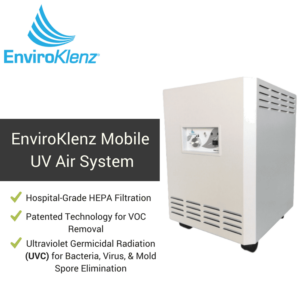 Myth: A HEPA Filter Will Eradicate All Breathing Issues
Myth: A HEPA Filter Will Eradicate All Breathing Issues
An air purifier is only a component to allergy relief, not a complete remedy. Some allergens are heavy, such as pollen, which will bring them down to the surfaces quicker than an air purifier can collect them. Over time an air purifier will take in these allergens, but for those who are suffering from allergies you want and need relief to be sooner rather than later. However, depending on the CFM rating of the air purifier these allergens could be collected faster. Nonetheless, you still will want to incorporate other allergy remedy practices in your home such as using chemical-free cleaning products, washing bedding in hot water, or even utilizing a dehumidifier within your personal environment.
Myth: If an Air Purifier Has a HEPA Filter, then it Must Work
For air purification, two key measurements include efficiency and effectiveness – but both can be measured differently depending on the filter type. HEPA filters are known for both their effectiveness and efficiency in air filtration and particulate removal, but to think that your HEPA filter is effective against every and all air pollutants is simply a myth. HEPA filters, although extremely effective against fine particulate matter, they have an inability to effectively remove many indoor air pollutants including mold, viruses, bacteria, gases and VOCs (Volatile Organic Chemicals) that are released into the air. When you are looking for an effective HEPA air purifier – especially one with a HEPA filter that also effectively removes mold, viruses, bacteria, gases, and VOCs – looking at the different stages of filtration that the system provides is important to ensure that your home is getting protection against a wide variety of indoor air pollutants.
Myth: Air Purifiers with HEPA Filters Remove Odors
HEPA filters contain a vast amount of capabilities, however, not included in this long list is the ability to neutralize odors in the air. Many air purifiers claim to remove odors from the air, but odor neutralization can only be accomplished through an additional filtration system in your air purifier. Air purifiers like the EnviroKlenz Mobile System, incorporate both HEPA filtration as well as chemicals and odor neutralization through a proprietary technology that utilizes earth minerals – with no carbon used at all. Selecting an air purifier with both stages of filtration will aid in the removal of both particulates and odors in your personal indoor air and help to improve and/or eliminate allergens from the environment to aid allergy sufferers.
